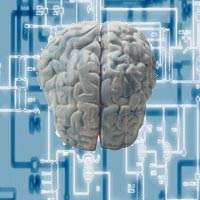I suggest in assuming that you should prohibit an activity simply because you do not see the "moral imperative".I'm not comfortable with reproductive cloning as I understand it. Reproductive cloning to make a twin of yourself... I don't see the ethical or moral imperative in this. Where am I going wrong?
Some reasons why reproductive cloning could be performed include:
-wishing to reproduce while being infertile and unable (or unwilling) to rely on IVF
-wishing ones offspring to have a certain genetic trait, but not being able to rely on, (or objecting to) embryo selection in IVF
Thus: as member of Immortality Institute, and advisor on biotech law and ethics, I would like to voice a slightly
Dissenting Opinion:
The technique of reproductive cloning does raise
potential problems of predestination and infringement of the
rights to freedom of the clone. On the safety side concerns
about the health of clone and mother, standartisation and
depletion of the gene pool should be considered.
BUT since none of these problems are imminent at this stage,
reproductive cloning should not be prohibited, if it is
performed privately.
The existing law in most countries is prepared to deal with
a situation where the woman suffers injury without her
informed consent, as it is suited to deal with a situation where
a parent is unfit to rear a child.
However, before public funds are used for research or
application, a review board should look into the motives of
the individual wishing to clone, disallowing the process if there
are any doubts that the child produced will be brought up in a
responsible and loving way.
Raelllians are loony, but at least they had the guts to go ahead and defy the scaremongering hypocrisy of the anti-cloning debate since Huxley and especially since Dolly. Clones are not monsters. The only monsters are in the minds of those unwilling to rationalize their fear about what they do not perceive as "normal" or "natural".
Finally, as Mr. Klein pointed out above it is a scientific and philosophical fallacy to even consider "reproductive cloning" and (unfortunately so-called) "therapeutic cloning" in the same argument. The two topics are quite distinct and should be treated as such!





















































